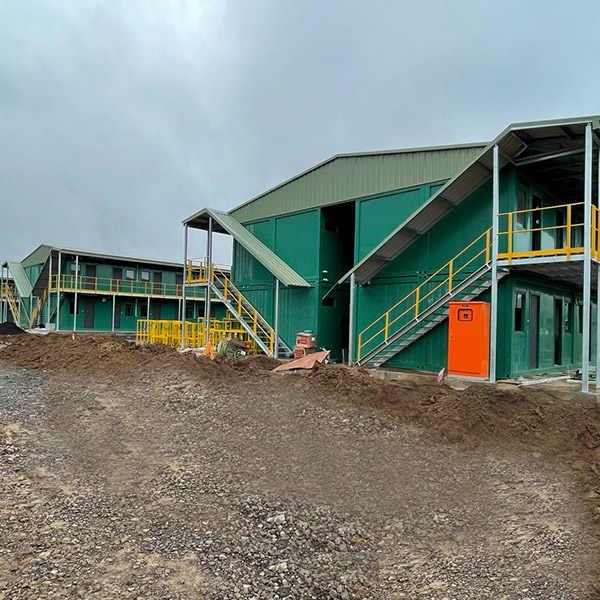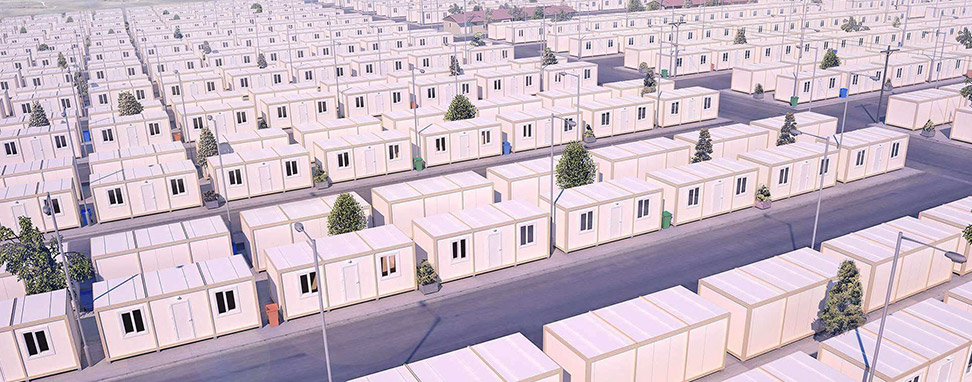In the world of construction, where large-scale projects often span months or even years, a well-organized construction site camp plays a crucial role in ensuring efficiency, safety, and worker well-being. These camps serve as temporary hubs that support the workforce, streamline operations, and foster collaboration among teams. From housing workers to providing essential amenities, a construction site camp is more than just a collection of tents or trailers—it is the backbone of successful project execution.
The Purpose of Construction Site Camps
Construction site camps are established near project locations, especially in remote or challenging terrains where commuting daily is impractical. These camps provide accommodation, meals, rest areas, and other facilities for workers, engineers, supervisors, and support staff. By keeping the workforce close to the site, companies can minimize travel time, reduce fatigue, and maximize productivity.

For example, in industries like mining, oil and gas, or infrastructure development (such as highways, dams, and bridges), construction site camps are indispensable. They ensure that workers remain focused on their tasks without being burdened by logistical challenges or long commutes.
Key Components of a Construction Site Camp
A well-designed construction site camp includes several key components to meet the diverse needs of its occupants:
Accommodation Units : Dormitories, cabins, or portable housing units are set up to provide comfortable living spaces for workers. These units are typically equipped with basic furniture, beds, lighting, and climate control systems to ensure comfort regardless of weather conditions.
Dining Facilities : On-site kitchens and dining halls offer nutritious meals tailored to the demanding physical labor performed by workers. Proper nutrition is vital for maintaining energy levels and overall health during long workdays.
Recreational Areas : To combat stress and boredom after work hours, many camps include recreational facilities such as gyms, TV rooms, or outdoor sports areas. These spaces help improve morale and create a sense of community among workers.
Medical Services : Safety is paramount on construction sites, and having a medical facility within the camp ensures quick access to first aid and emergency care. This is particularly important in remote locations where hospitals may be far away.
Utilities and Infrastructure : Reliable water supply, electricity, waste management, and internet connectivity are essential for the smooth functioning of a construction site camp. Modern camps often incorporate sustainable practices, such as solar panels or wastewater recycling systems, to minimize environmental impact.
Benefits of a Well-Managed Camp
A thoughtfully planned construction site camp offers numerous benefits beyond convenience. It enhances worker satisfaction, reduces turnover rates, and boosts productivity. Workers who feel supported and valued are more likely to stay motivated and perform at their best. Additionally, centralized accommodations simplify logistics, allowing managers to coordinate activities efficiently and respond promptly to any issues that arise.
From a safety perspective, having all personnel located nearby enables quicker mobilization during emergencies. Whether it’s an equipment malfunction, adverse weather conditions, or a medical incident, proximity ensures faster response times and better outcomes.
Challenges and Solutions
Despite their advantages, managing a construction site camp comes with challenges. One common issue is maintaining hygiene and cleanliness, especially in densely populated camps. Regular cleaning schedules, proper waste disposal systems, and strict adherence to health protocols can mitigate these concerns.
Another challenge is addressing the mental well-being of workers, particularly when they spend extended periods away from home. Employers can tackle this by organizing social events, offering counseling services, and encouraging open communication channels between staff and management.
A construction site camp is much more than a temporary settlement—it is a lifeline for large-scale projects. By providing a safe, comfortable, and efficient environment for workers, these camps contribute significantly to the success of construction endeavors. As the industry continues to evolve, incorporating innovative technologies and sustainable practices will further enhance the functionality and effectiveness of construction site camps, ensuring they remain a cornerstone of modern engineering achievements.








